Indigenous Governance Database
Cherokee Nation
Julia Coates: The Process of Constitutional Reform: What the Cherokee Nation Did and Why
Cherokee Nation Councilor Julia Coates presents an overview of the constitutional history of the Cherokee Nation, and chronicles the process the Cherokee Nation followed to reform its constitution in 1999.
Todd Hembree: A Key Constitutional Issue: Separations of Powers (Q&A)
Cherokee Nation Attorney General fields questions about the critical role of separations of powers in effective Native nation governance and how the Cherokee Nation instituted an array of separations of powers in the development of their new constitution
Taylor Keen: The Disenfranchisement of the Cherokee Freedmen: Assertion or Abuse of Sovereignty?
Taylor Keen (Cherokee), a former member of the Cherokee Nation Council, discusses the stand he took against his nation's recent decision to disenfranchise the Cherokee Freedman. He offers a convincing argument against the move, explaining that taking away the citizenship rights of the Freedmen…
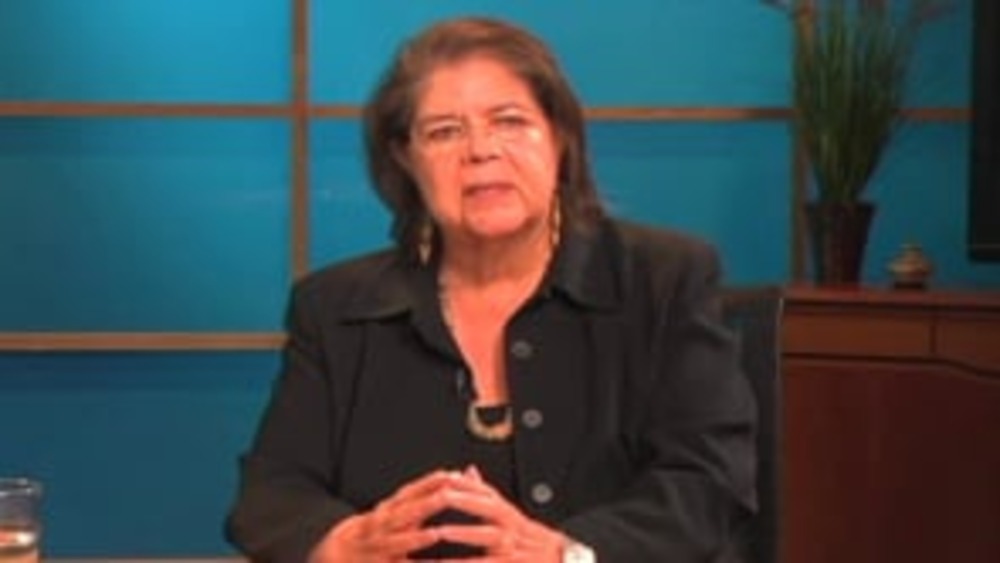
Wilma Mankiller: Governance, Leadership and the Cherokee Nation
As part of its ongoing interview series "Leading Native Nations," the Native Nations Institute (NNI) interviewed Wilma Mankiller, the late and former Chief of the Cherokee Nation, in September 2008. In the interview, she discussed her compelling personal story as well as the challenges the Cherokee…
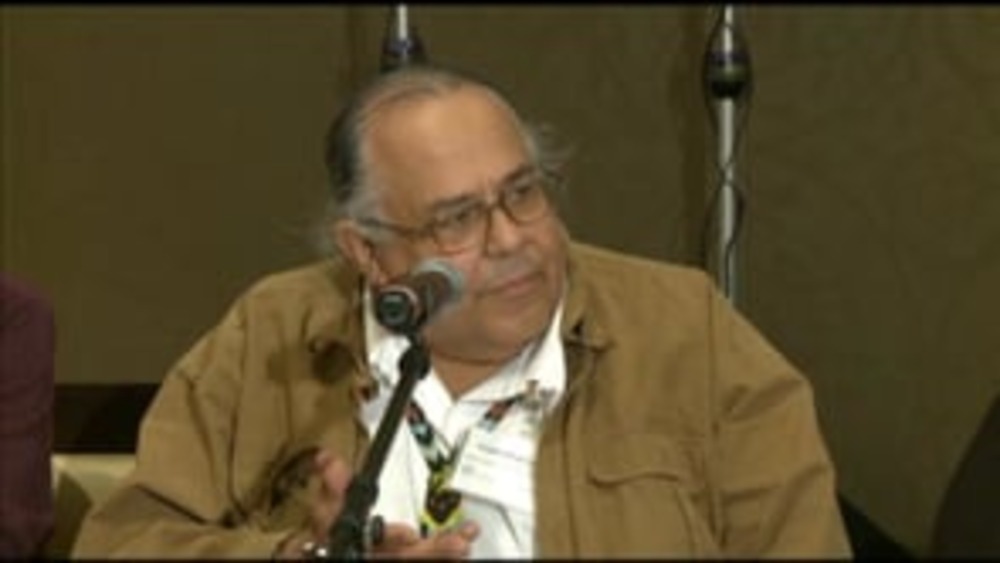
Constitutional Reform: A Wrap-Up Discussion (Q&A)
NNI "Tribal Constitutions" seminar presenters, panelists and participants Robert Breaker, Julia Coates, Frank Ettawageshik, Miriam Jorgensen, Gwen Phillips, Ian Record, Melissa L. Tatum and Joan Timeche field questions from the audience about separations of powers, citizenship, blood quantum and…
Todd Hembree: A Key Constitutional Issue: Separations of Powers
Cherokee Nation Attorney General Todd Hembree discusses the critical role of separations of powers in effective Native nation governance, and provides an overview of how the Cherokee Nation instituted an array of separations of powers in the development of their new constitution, which was ratified…

Tribes Pushing Minimum Wage Higher
Though the minimum wage remains at $7.25 per hour for most Oklahomans, several tribal nations pay more or have boosted their entry-level wage above the federal level, a move that could cause the Oklahoma Legislature to take another look at the issue...
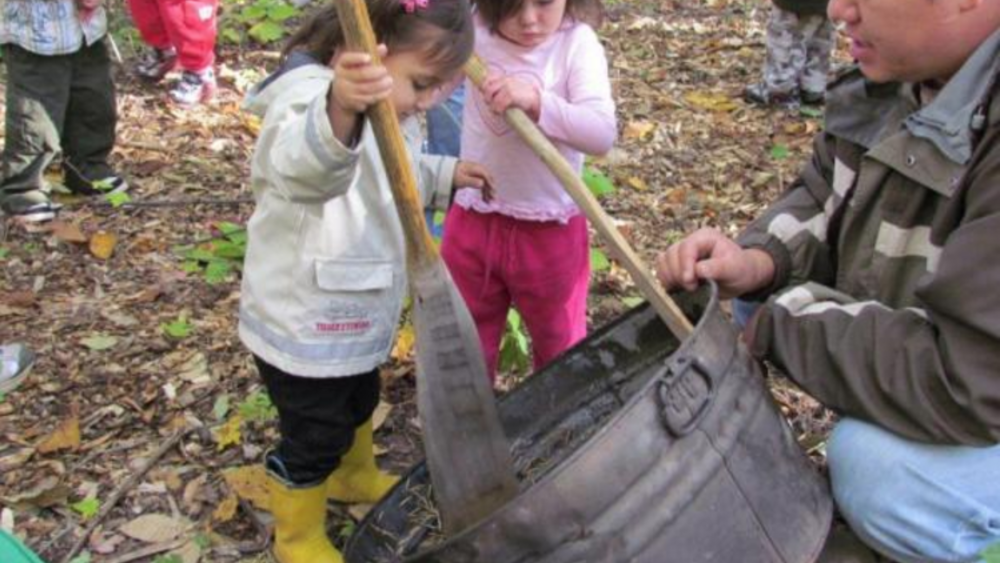
Preserving Culture: 6 Early Childhood Language Immersion Programs
Language immersion schools have proved to be enormously beneficial for young learners’ academics. To quote Dr. Janine Pease-Pretty on Top, Crow, founding president of Little Big Horn College, “Solid data from the Navajo, Blackfeet and Assiniboine immersion schools experience indicates that the…

Cherokee Nation Raises Tribal Minimum Wage, More Than $2 Above Federal
Cherokee Nation Principal Chief Bill John Baker signed an executive order on February 21 raising the Cherokee Nation’s minimum wage to $9.50 over the next two years. The current Cherokee Nation minimum wage stands at $9 per hour, already well above the federal minimum wage of $7.25 per hour...
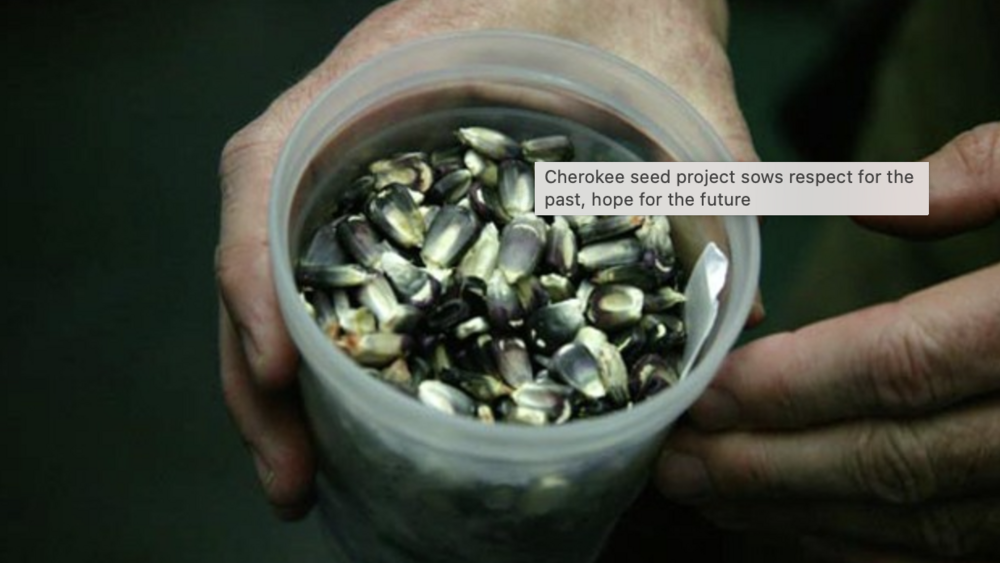
Cherokee seed project sows respect for the past, hope for the future
The Cherokee Indians are preserving the roots of their heritage with a program that allows officially recognized members of the tribe to access seeds that are unique to the Cherokee Nation. Principal Chief of the Cherokee Nation, Bill John Baker explained the seeds' lineage to CNN. "This strain of…
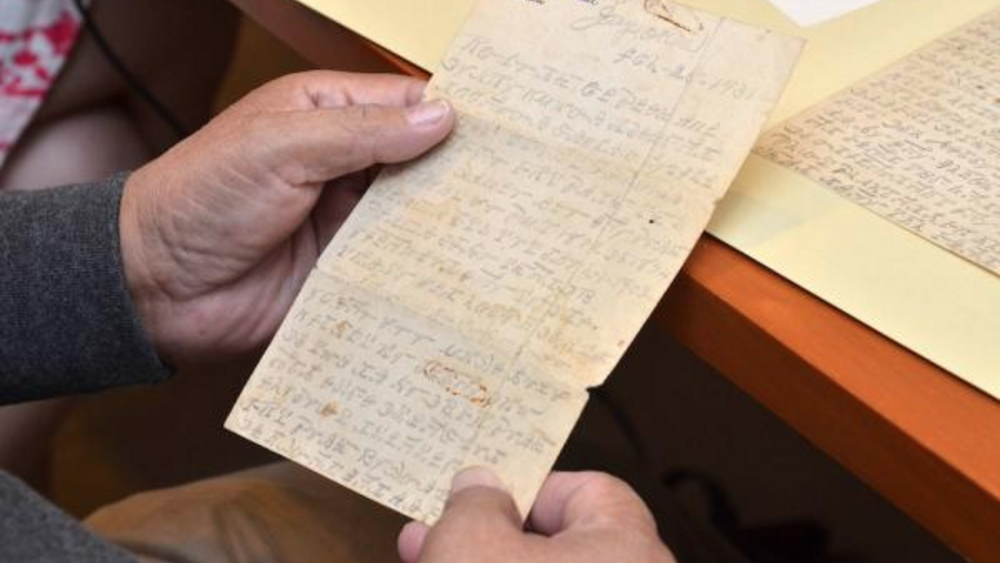
Keeping Language Alive: Cherokee Letters Being Translated for Yale
Century-old journals, political messages and medicinal formulas handwritten in Cherokee and archived at Yale University are being translated for the first time. The Cherokee Nation is among a small few, if not the only tribe, that has a language translation department who contracts with Apple,…
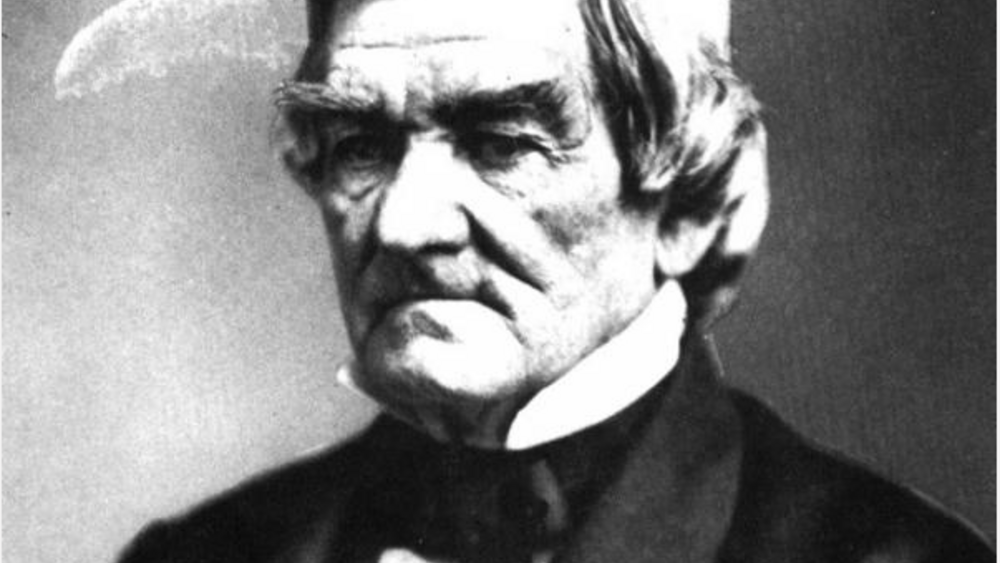
How Does Tribal Leadership Compare to Parliamentary Leadership?
Many traditional American Indian governments have significant organizational similarities with contemporary parliamentary governments around the world. A key similarity is that leadership serves only as long as there is supporting political consensus or confidence that the leader or leadership…
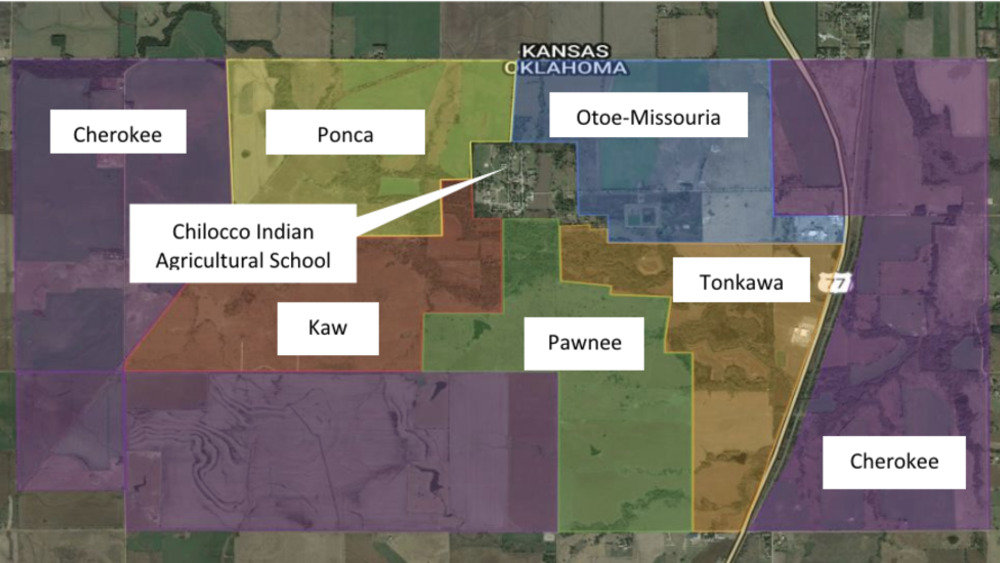
Cherokee Wind Energy Development Feasability and Pre-Construction Studies
Cherokee Nation Businesses (CNB) received a grant from the US Department of Energy to explore feasibility and pursue development of a wind power generation facility on Cherokee land in north-central Oklahoma. This project followed several years of initial study exploring the possibility of…
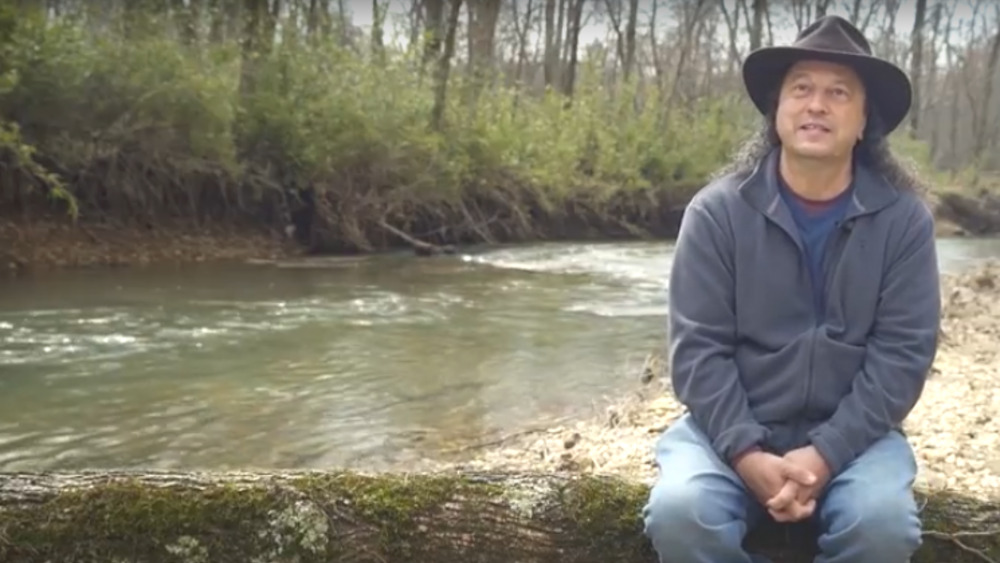
Saving River Cane - Cherokee
It’s an ancient plant that many tribes once relied on for survival. Now it’s survival is threatened. Watch what the Cherokee Nation is doing to keep river cane alive in Northeastern Oklahoma.

Cherokee Nation's Kawi Café offers small business training
The Cherokee Nation’s Kawi Café is now serving up its signature Cherokee blend coffee in downtown Tahlequah, while giving budding entrepreneurs firsthand experience running their own business. A ribbon-cutting was held Thursday at the café, which the Cherokee Nation opened last month in a 1,…
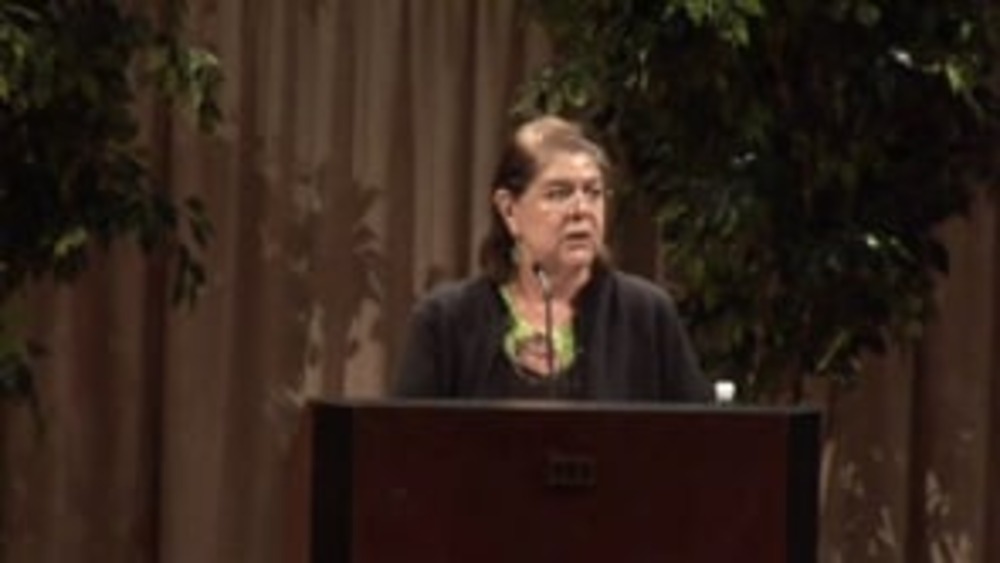
Wilma Mankiller: Challenges Facing 21st Century Indigenous People
Recorded on October 2, 2008 at the Heard Museum in Phoenix, Wilma Mankiller, former principal chief of the Cherokee Nation and internationally known Native rights activist talks about “Challenges Facing 21st Century Indigenous People.†Mankiller talks of the diversity and uniqueness of the over…
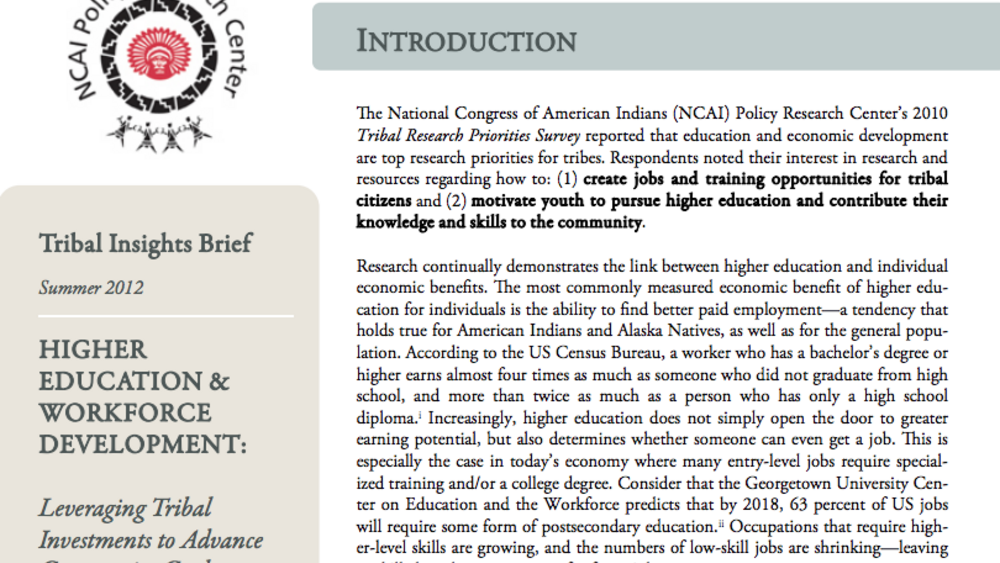
Higher Education & Workforce Development: Leveraging Tribal Investments to Advance Community Goals
The National Congress of American Indians (NCAI) Policy Research Center's 2010 Tribal Research Priorities Survey reported that education and economic development are top research priorities for tribes. Respondents noted their interest in research and resources regarding how to: (1) create jobs and…
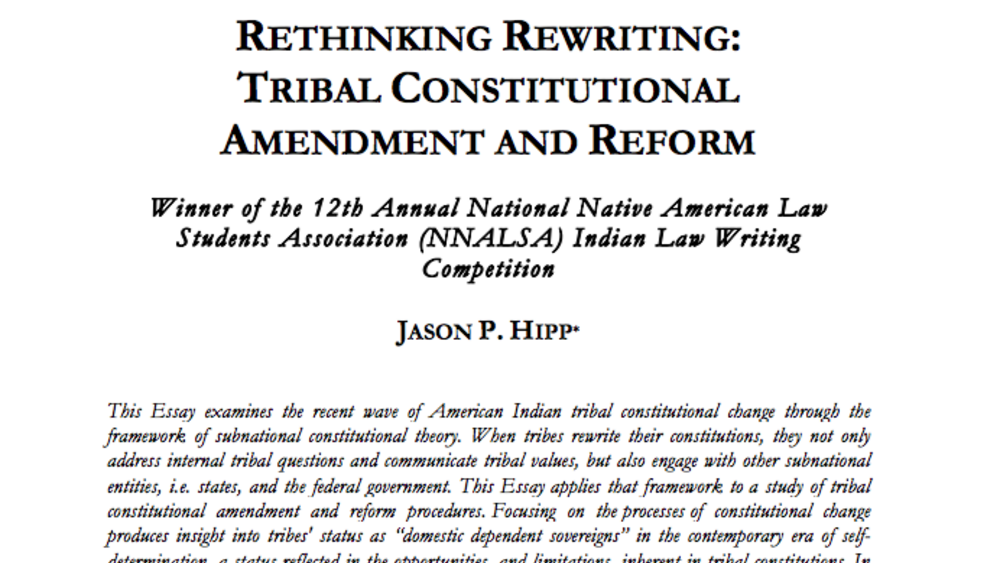
Rethinking Rewriting: Tribal Constitutional Amendment and Reform
This essay examines the recent wave of American Indian tribal constitutional change through the framework of subnational constitutional theory. When tribes rewrite their constitutions, they not only address internal tribal questions and communicate tribal values, but also engage with other…
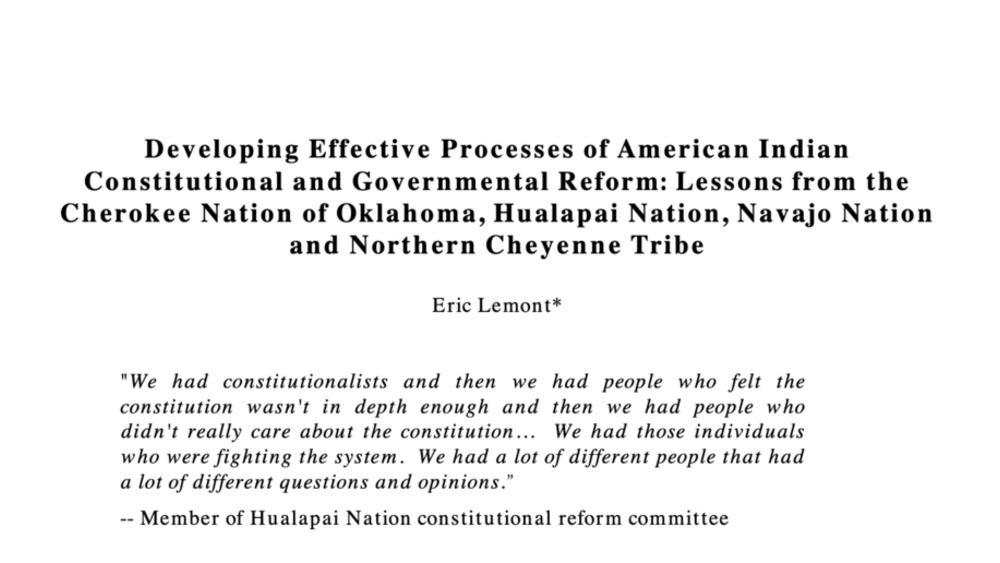
Developing Effective Processes of American Indian Constitutional and Governmental Reform: Lessons from the Cherokee Nation of Oklahoma, Hualapai Nation, Navajo Nation and Northern Cheyenne Tribe
Over the past several decades, numerous American Indian nations have been revising their constitutions to create more legitimate, effective and culturally-appropriate governments. However, successful processes of reform have been hindered by a variety of universal challenges, including political…
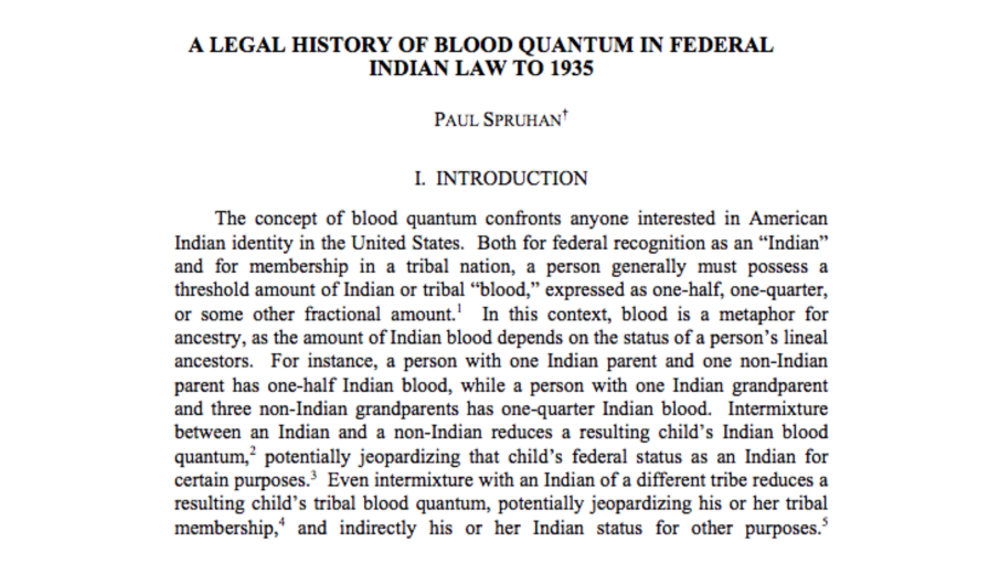
A Legal History of Blood Quantum in Federal Indian Law to 1935
The paper traces the development of the use of blood quantum, or fractional amounts of Indian blood to define Indian in federal law up to the Indian Reorganization Act of 1934. The paper shows that blood quantum was not widely used in federal law until the twentieth century, as the branches of the…
Pagination
- First page
- …
- 1
- 2
- …
